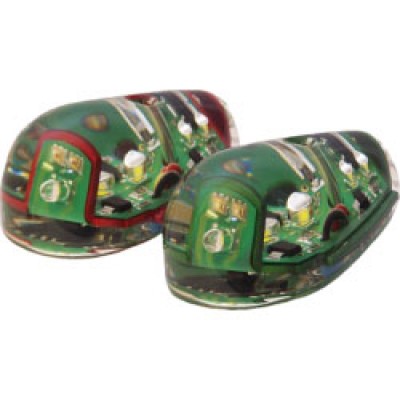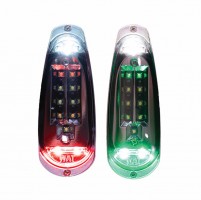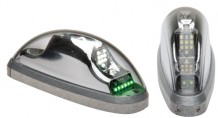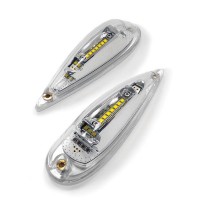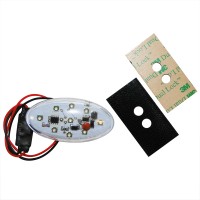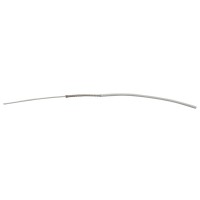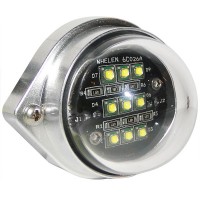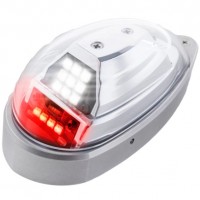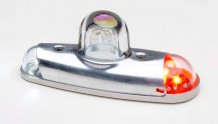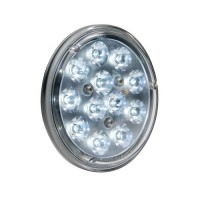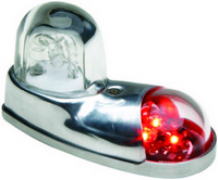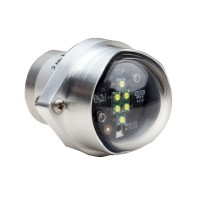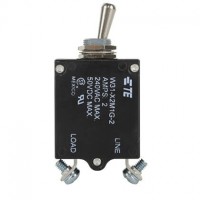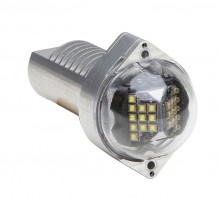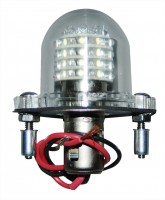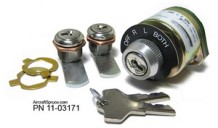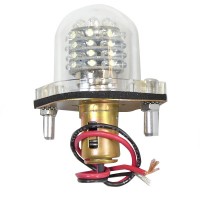1-877-795-2278 | info@aircraftspruce.ca
Aircraft Spruce Canada
Brantford, ON Canada
Corona, CA | Peachtree City, GA
Chicago, IL | Wasilla, AK
Aircraft Spruce Canada
Brantford, ON Canada
Corona, CA | Peachtree City, GA
Chicago, IL | Wasilla, AK
FREE SHIPPING ON ORDERS OVER $699 (SOME EXCLUSIONS APPLY) | 877-795-2278
Nav Light (Tip & Tail) and Strobe Combo - Non TSO
$819.00/Each
Part# 11-20261
MFR Model# EPTA-NG
MFR Model# EPTA-NG
Overview
|
EPTA-NG - Electronic Position and Tail Light with Anti-Collision Light for NON-TSO'ed aircraft.
With FLARM-Interface and integrated Intelligent Synchronization - exceeds the requirements of FAR 23. Combination of Position Light, Tail Light and Anti Collision Light with FLARM-Interface. A systematic further developed feature for our well proven EPTA-LSA is the additional serial FLARM-Interface. The result is the EPTA-NG (NextGeneration). In the event of an aircraft on a potential colliding course a connected PowerFLARM unit accelerates the flashing sequence of the EPTA-NG according to the FLARM alert level. This makes your aircraft more conspicuous and therefore helps to increase the safety in the airspace. The new LED technology allows an incredibly glaring red and green position light with approx. only 10% of the input power consumption compared with conventional lights. The casing in high optical plastic makes the EPTA absolutely insensitive to vibrations, water, dust and other environmental influences. The efficiency of the output is much higher than that of incandescent light bulbs. The heat loss of the EPTA is very low and monitored by the integrated heat controller. Nevertheless the lights need fresh airflow so installations preventing this are to avoid. In case the lights are to be mounted behind an acrylic glass panel be aware of the green house effect and ensure a sufficient airflow at all times. In addition the EPTA-NG is provided with an internal overload protection. In case of over voltage the protector switches the EPTA-NG off. When the voltage drops or the EPTA is resetted by disconnecting from the power supply, the light is fully functional again. The overload protection will be activated by exceeding 17 V DC. To make the installation easy the EPTA-NG wing tip lights are pre-wired just like all other Thiesen lights. To be wired up to cables with 1.5 mm˛ cross section. Easy to mount with screw / bolt and additional coloured silicone. For a quick and easy conversion from xenon flashes to our EPTA lights there is a conversion adapter available. See Conversion Adapter As with each Thiesen product, all systems are integrated into the light units, so there is no need for external controllers, power conditioners, or power supplies. This can provide a significant savings of weight, complexity, and COST! |
Specifications
| Label | Description |
|---|---|
| Operating voltage | 10 - 17 Volts (DC), typically: 12.8 - 13.4 Volts (on-board power supply) |
| Wattage | 20 Watts (approx.) |
| Fuse | 5 Amp. (fusible cut-out or automatic fuse) |
| Dimensions | 80 x 40 x 30 mm (L x W x H) |
| Drill hole | 4.5 mm |
| Weight | approx. 76 Grams including connecting cables |
| Warranty | 5.000 operating hours or max. 3 years |
Benefits
FLARM-Interface: With this interface (19.200 Baud, 8 Bit, No Parity, 1 Stop-Bit) a connected Power-FLARM unit can send the emergency levels 0 – 3 to the EPTA-NG and thus regulate the flash sequences of the lights. This increases the detectability of your aircraft in flight significantly and can help to prevent a collision.Intelligent Synchronization: Our developed "Intelligent Synchronization" schedules the light pulses so there is no overlap of the individual lighting flashes. This ingenious pulse shifting reduces the battery and generator requirements that there only one light is on at any given moment. It prevents battery and generator from becoming overloaded.
Q&A
Please note, Aircraft Spruce Canada's personnel are not certified aircraft mechanics and can only provide general support and ideas, which should not be relied upon or implemented in lieu of consulting an A&P or other qualified technician. Aircraft Spruce Canada assumes no responsibility or liability for any issue or problem which may arise from any repair, modification or other work done from this knowledge base. Any product eligibility information provided here is based on general application guides and we recommend always referring to your specific aircraft parts manual, the parts manufacturer or consulting with a qualified mechanic.

 Aircraft Spruce Canada
Aircraft Spruce Canada
